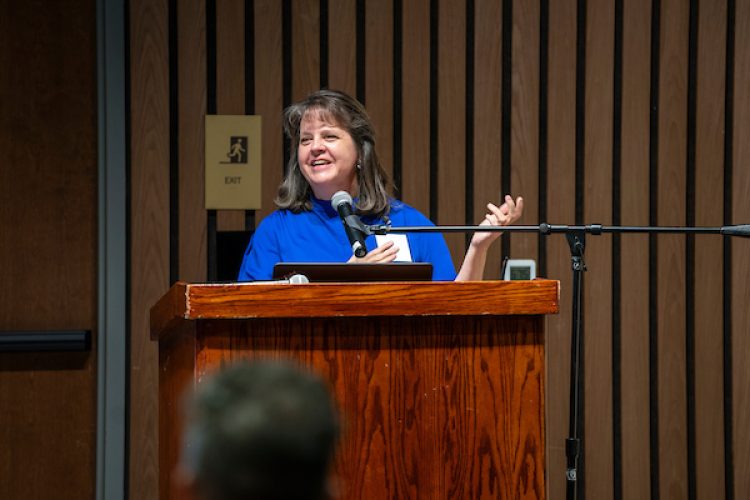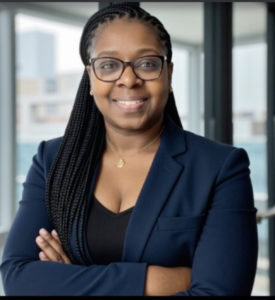LEXINGTON, KY — Debbie Carey, a doctoral student in the UK Doctor of Social Work (DSW) program and Quality Coordinator at the Markey Cancer Center Affiliate Network, uses her lived experiences to guide research that supports cancer care teams in coping with grief and loss.
In December 2024, Carey presented her research during the UK Markey Cancer Affiliate Network Cancer Care Conference. Her presentation was titled, “Caring for Our Own: Supporting Cancer Care Teams When Tragedy Hits Home,” which included practical strategies to help healthcare workers manage the combined challenges of personal grief and their professional responsibilities.
Drawing from her experience managing a radiation treatment center during a traumatic loss of a staff member, Carey’s presentation focused on the pressing need and benefit of prioritizing emotional support in healthcare workplaces.
“How do we care for hurting people who are caring for hurting people?” Carey asks—a question that has driven her research and action.
Key findings from her presentation reveal:
• Grief impacts retention: Employee support during grief significantly affects retention rates, surpassing traditional workplace recognition programs in importance.
• Training matters: Equipping employees to navigate grief improves patient interactions and fosters team cohesion during crises.
Carey’s presentation integrated data from national studies and best practices in workplace grief management. Statistics show that 1 in 4 employees is grieving, costing U.S. companies over $75 billion annually in lost productivity (Workplace Healing, 2024; Grief.com, 2024). In healthcare, where emotional resilience is critical, 56% of employees experiencing unsupported grief consider leaving their roles (Workplace Healing, 2024).
Her presentation adapted the C.A.R.E. (Communication, Accommodation, Recognition, Emotional Support) model of employee bereavement and support from Gilbert et al. (2021), which provides a framework for guiding leaders through crises. The model offers practical tools like creating memory walls, initiating support groups, and providing routine training for grief responses.
“Compassion in the workplace acknowledges pain rather than apologizing for it,” Carey notes, citing studies that link empathy and open acknowledgment of loss to healing and team strength.
Resources highlighted in her framework include employee assistance programs, bereavement policies, and organizations such as the Kentucky Center for Grieving Children & Families and the Center for Loss & Bereavement.
Carey’s approach aims to build preparedness plans tailored to healthcare settings, enabling teams to navigate tragedy with resilience and compassion. “Acknowledging grief as part of workplace culture isn’t just a strategy—it’s a necessity,” she emphasizes.






